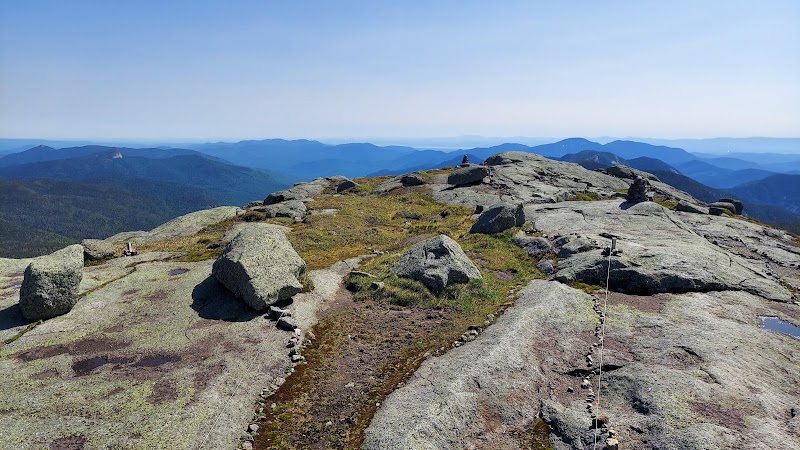
Mettawee River Clean-up Day: Rallying Adventure and Stewardship in Granville, NY
Join the Mettawee River Clean-up Day in Granville, NY—a hands-on adventure blending river-side hiking and environmental stewardship. Experience the power of the Mettawee as you help restore its banks, making this outdoor gem ready for future exploration.
Wear Sturdy, Water-Resistant Footwear
The riverbanks can be slippery and uneven. Boots or shoes with solid tread help keep your footing secure throughout the day.
Stay Hydrated
Bring at least 2 liters of water to stay energized; cleanup work combined with walking can deplete your stamina quickly.
Dress in Layers
Morning temperatures can be cool, but midday warms quickly. Layering helps you adjust on the move without overheating.
Follow Local Waste Disposal Guidelines
Use provided trash bags and dispose of waste as instructed to maximize cleanup efficiency and environmental safety.
Mettawee River Clean-up Day: Rallying Adventure and Stewardship in Granville, NY
Granville, New York, hosts a unique kind of adventure—one where the trail leads not just through forest and field, but along the winding Mettawee River itself. Mettawee River Clean-up Day combines outdoor enthusiasm with active stewardship, inviting hikers, paddlers, and locals alike to engage deeply with this fiercely flowing waterway. It’s a chance to feel the river’s current push you forward, to listen as the trees lean in with every breeze, and to fight back against the litter that threatens this landscape’s integrity.
The event often begins near the river’s access points at Granville’s parks or bridge crossings, where volunteers gather to plan their route and organize cleanup gear. Participants typically traverse roughly 4 to 6 miles along the riverbanks, covering terrain that varies from easy gravel paths to more rugged, root-strewn forest floors. Elevation changes are modest, mainly gentle inclines that rise and fall like the river’s own pulse.
As you move along, the river dares you to respect its power—sometimes it rushes with sudden force, other times it lullabies you with soft ripples and the buzz of insects. Along the way, you’ll notice patches of bright wildflowers where the sun breaks through the canopy, and listen to red-tailed hawks calling overhead—a reminder that this stretch of wilderness supports vibrant life.
Preparation is key to participation. Sturdy footwear with good tread is essential since some trails can be slippery, especially near river bends. Wear quick-dry clothes layered for changing temperatures, and bring plenty of water; hydration keeps your energy steady during several hours on your feet. Early mornings offer cooler weather and calmer winds, so arriving before 9 a.m. sets you up for a smoother experience.
The clean-up itself is straightforward but rewarding work. Gloves, bags, and grabbers (provided by organizers) transform every footprint into a purposeful step. Removing trash doesn’t just protect wildlife—it creates a more inviting backdrop for future adventures. You’ll leave not just feeling accomplished but connected to an active community working alongside the river.
For every adventurer—whether you’re tracking wildlife, practicing leave-no-trace principles, or simply spending an afternoon outdoors—Mettawee River Clean-up Day offers a grounded kind of adventure. It’s a demonstration that nature can be fiercely itself and that our role includes caring for these spaces, not merely passing through them.
Nearby Trips
All Adventures
Boat Charters
Water Activities
Adventures near Granville, New York
Discover the unique and memorable adventures that make Granville, New York special.
Frequently Asked Questions
Is the Mettawee River Clean-up Day suitable for children?
Yes, families with older children can participate, provided they are supervised and comfortable walking on uneven terrain. Organizers often supply gloves and bags sized for smaller hands.
Are paddlers welcome to join the cleanup on the river itself?
Absolutely. Kayakers and canoers often assist by collecting trash from the river surface, especially near harder-to-reach banks.
What type of wildlife might I expect to see during the cleanup?
Keep an eye out for great blue herons stalking the shallows, red-tailed hawks overhead, and turtles basking on sunlit rocks. The river also supports native fish like trout and smallmouth bass.
How is trash collected during the clean-up disposed of after the event?
All collected waste is gathered into organized piles, then removed by local waste services partnering with the event, ensuring proper recycling or disposal.
Can I volunteer if I don’t have prior cleanup experience?
Yes, newcomers are always welcome. Organizers provide basic instructions and safety guidance before starting.
Are pets allowed during the cleanup?
Pets are usually permitted if leashed, but consider local wildlife and other participants; it’s best to check specific event guidelines before bringing your pet.
Recommended Gear
Waterproof Hiking Boots
Protects feet from wet, slippery surfaces and offers stability on uneven riverbanks.
Reusable Water Bottle
Hydration is critical; a refillable bottle helps maintain steady energy levels and limits plastic waste.
Layered Quick-Dry Clothing
Accommodates temperature changes and moisture from river spray or rain.
Gloves for Cleanup
Protects hands from sharp debris and dirt while gathering trash along riverbanks.
Local Insights
Hidden Gems
- "Stone ledges tucked just upstream offer unexpected panoramic river views."
- "Small gravel bars perfect for short rests appear along quieter river bends."
Wildlife
- "Watch for the elusive river otter signs—slides and prints near the bank."
- "In spring, migratory warblers use the forested edges as stopover points."
History
"The Mettawee River has long been a resource for local mills and farms, with clean-up efforts helping preserve its role in the community’s agricultural and recreational life."
